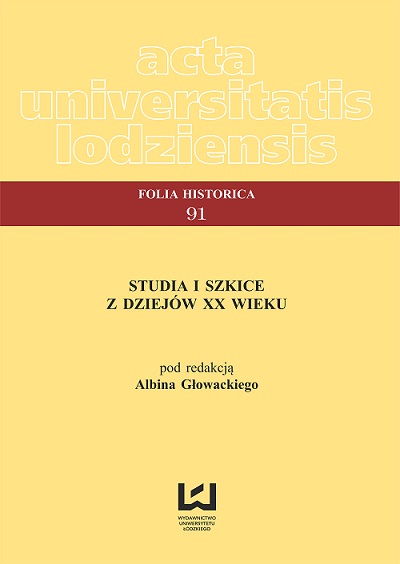Portuguese trade of wolfram during world war II – conditions, characteristics, implications
DOI:
https://doi.org/10.18778/0208-6050.91.02Abstract
The aim of the article Portuguese trade of wolfram during World War II – conditions, characteristics, implications is to depict several aspects of the Portuguese maintaining-balance strategy during World War II. Exploration of valuable deposits of wolfram was meant to be the Portuguese bargaining chip. The article is an attempt of assessing the real scale and importance of the topic. Evaluation involves period 1940–1944 – since capitulation of the III French Republic to definite termination of the Portuguese supplies for the Third Reich. Social background is also included in the text. Exploration of the tungsten had allowed Portugal to save their neutrality in World War II.
Downloads
Downloads
Published
How to Cite
Issue
Section
License

This work is licensed under a Creative Commons Attribution-NonCommercial-NoDerivatives 4.0 International License.











